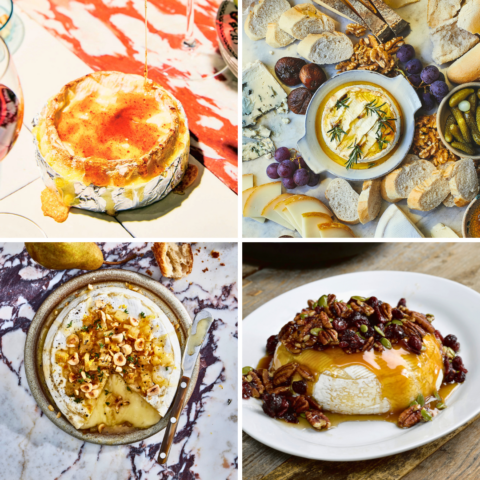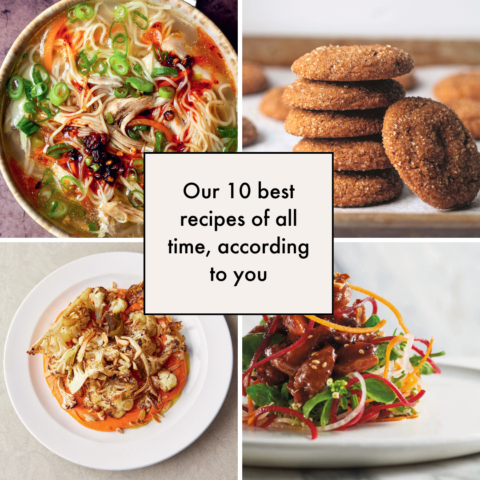Pro forager, chef and award-winning cookbook author Lori McCarthy was born in Bauline, N.L., in 1977, which means that, growing up, she and her peers were often told that in order to thrive, they’d have to leave their home. “I remember thinking, ‘No matter what, that will not be the story I tell my children,’” she says. For more than a decade now, McCarthy has been busy rewriting that tired narrative, dedicating her professional career to preserving Newfoundland’s cultural heritage, natural resources and traditional foodways (which are heavily rooted in game hunting, fishing and foraging) for future generations.
With its vast barren lands, lush boreal forests and rocky Arctic tundra, the terrain of Newfoundland is, without question, like no other. But for the island’s inhabitants, the breathtaking but rugged nature of the land has always presented unique agricultural challenges. “You’re in a place where nothing grows for nine months of the year,” says McCarthy. This explains why the bounty of wild edibles gifted by the land and sea is so important to who the people are. “I always find it interesting when people come here – I think that’s the beauty of visitors: It reminds you just how unique [Newfoundland] is. You almost forget that it’s a privilege to get to eat like this still.”

That’s why McCarthy wrote Food Culture Place: Stories, Traditions, and Recipes of Newfoundland, alongside co-author and photographer Marsha Tulk, as a cookbook/guide that takes readers on a year-long journey through how they harvest, cultivate, store, preserve and prepare seasonal wild ingredients with the “long haul” (a.k.a. winter) in mind. (The book took home the Food Heritage Books prize at the 2022 Gourmand World Cookbook Awards.) It’s also why she hosts East Coast Forager, a nature-to-table culinary series on Bell Fibe, and leads a food-culture residency program on the island. She wants people to see and know just how resilient Newfoundland and its food and people truly are.
Continuing the conversation, McCarthy (who – full disclosure – is a friend of mine) and I speak about the importance of keeping heritage alive in a globalized world, her first book and how she is changing perceptions, one thoughtful project at a time.

Her sense of place
“A sense of place is not just a physical surrounding – not the home or the community I live in. It’s like I carry this sense with me. No matter where I go, Newfoundland lives in me. Sitting and talking with little old ladies in their kitchens and fellas having a beer in the shed – that’s how you find your sense of place. I want people to understand that no matter where you’re from, you should understand the food of your place and tell the stories.”
Curating Food Culture Place
“We did it in one year. Every Monday, Marsha Tulk and I would get together – it was like, cook something and photograph something. Marsha has a fine-arts degree and is just the most creative person when it comes to photography. She also brought all her grandfather’s old negatives that she had been archiving. The book just came together like this love story of Newfoundland.”

The cookbook recipes to try
“The recipe that’s most dear to my heart is my great-grandmother’s 100-year-old gingerbread because it shows up at every funeral and wedding, when every child is born and at Christmas. Now people send me pictures from around the world of that recipe. And then there’s the moose carpaccio [with sweet-gale aioli to showcase] how delicious moose can be – that dish can sit at any of the finest restaurants around the world.”
Keeping heritage alive
“I think it’s a very boots-on-the-ground effort: It starts at home and in our schools – we have to get children early. To be able to eat this close to the land and the sea…we have to go outdoors more, understand how it works, how it grows. My focus is often small groups with seniors and intergenerational projects [including sewing seal skin with grandchildren or baking]. That’s how we make a difference – 1 percent at a time.”

What’s next
“We just signed on for a second season of East Coast Forager, which will later stream on YouTube. We start shooting the new show in September. I’m looking forward to doing a full year of cultural food residencies [a twice-annual immersive three- or six-day experience with foraging, fire cookery on the beach and preservation techniques with McCarthy in Newfoundland] next year. There’s a Food Culture Place headquarters [in the works with] a homestead where people can come and really be part of it, so that’s a big thing.”

















